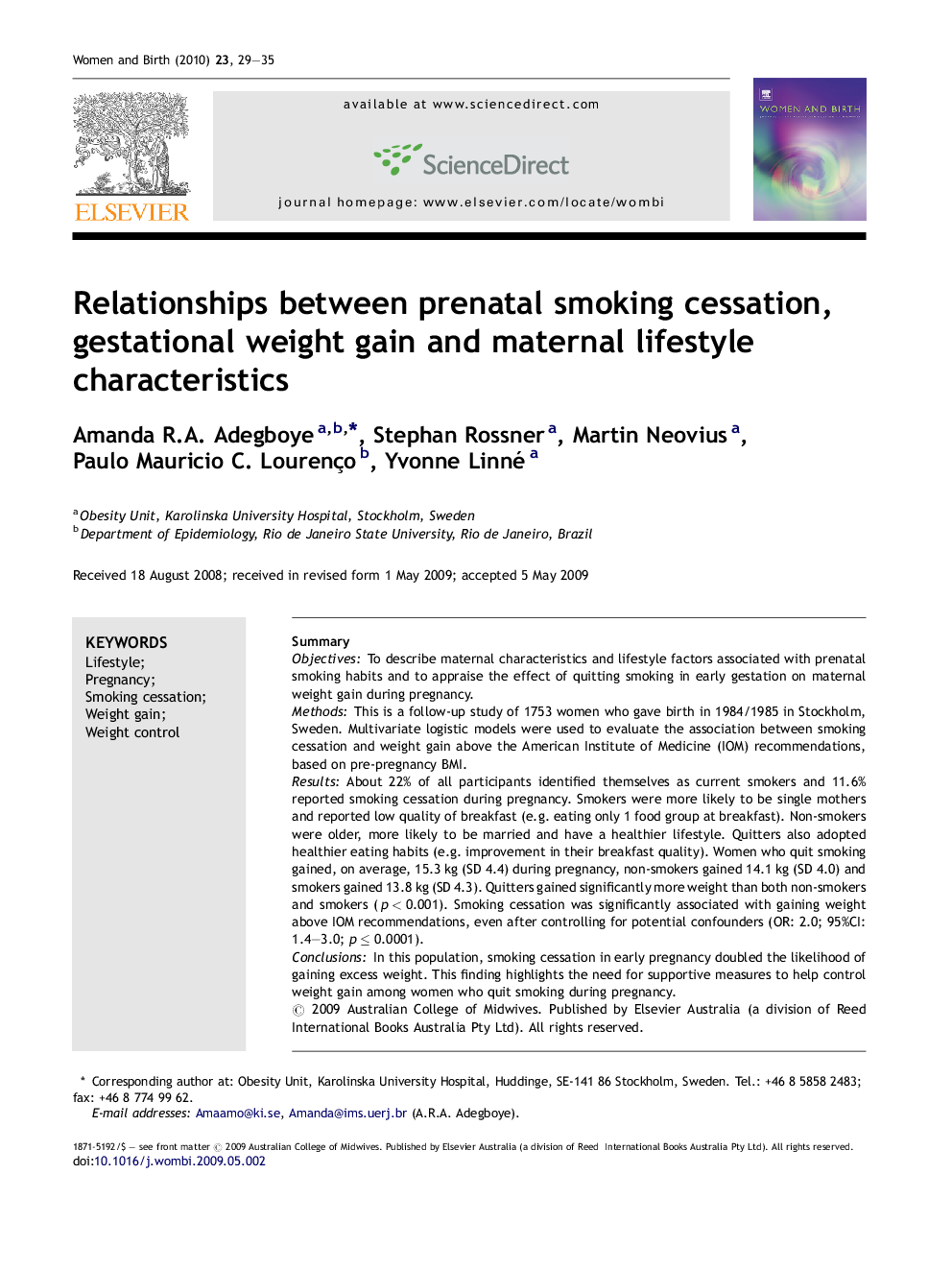| Article ID | Journal | Published Year | Pages | File Type |
|---|---|---|---|---|
| 2637154 | Women and Birth | 2010 | 7 Pages |
SummaryObjectivesTo describe maternal characteristics and lifestyle factors associated with prenatal smoking habits and to appraise the effect of quitting smoking in early gestation on maternal weight gain during pregnancy.MethodsThis is a follow-up study of 1753 women who gave birth in 1984/1985 in Stockholm, Sweden. Multivariate logistic models were used to evaluate the association between smoking cessation and weight gain above the American Institute of Medicine (IOM) recommendations, based on pre-pregnancy BMI.ResultsAbout 22% of all participants identified themselves as current smokers and 11.6% reported smoking cessation during pregnancy. Smokers were more likely to be single mothers and reported low quality of breakfast (e.g. eating only 1 food group at breakfast). Non-smokers were older, more likely to be married and have a healthier lifestyle. Quitters also adopted healthier eating habits (e.g. improvement in their breakfast quality). Women who quit smoking gained, on average, 15.3 kg (SD 4.4) during pregnancy, non-smokers gained 14.1 kg (SD 4.0) and smokers gained 13.8 kg (SD 4.3). Quitters gained significantly more weight than both non-smokers and smokers (p < 0.001). Smoking cessation was significantly associated with gaining weight above IOM recommendations, even after controlling for potential confounders (OR: 2.0; 95%CI: 1.4–3.0; p ≤ 0.0001).ConclusionsIn this population, smoking cessation in early pregnancy doubled the likelihood of gaining excess weight. This finding highlights the need for supportive measures to help control weight gain among women who quit smoking during pregnancy.
